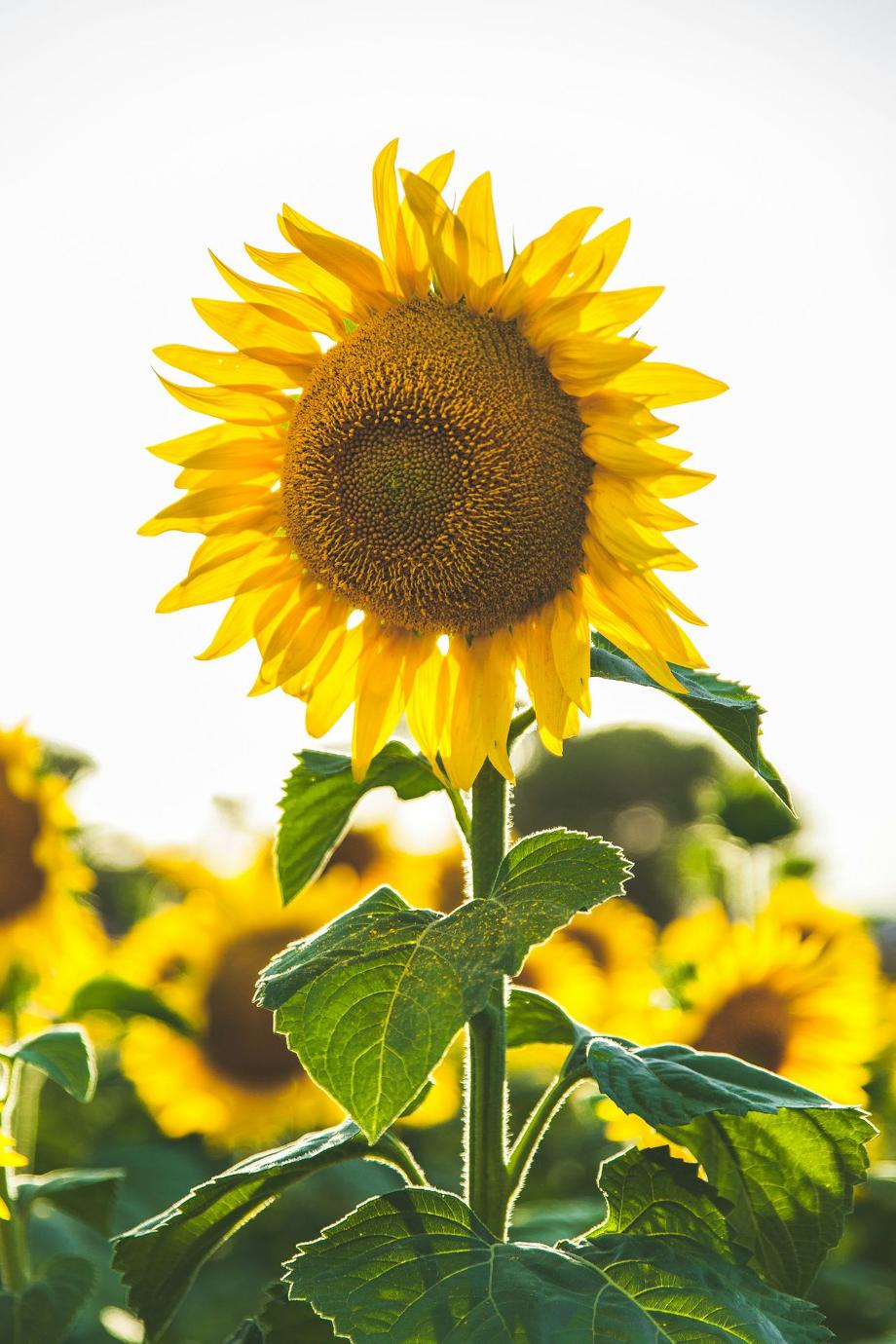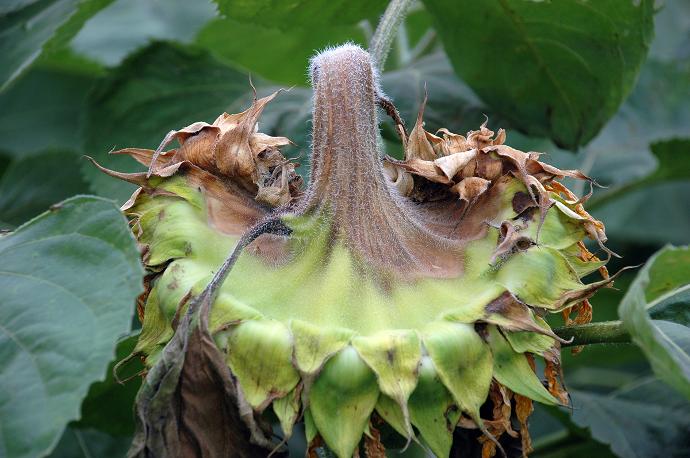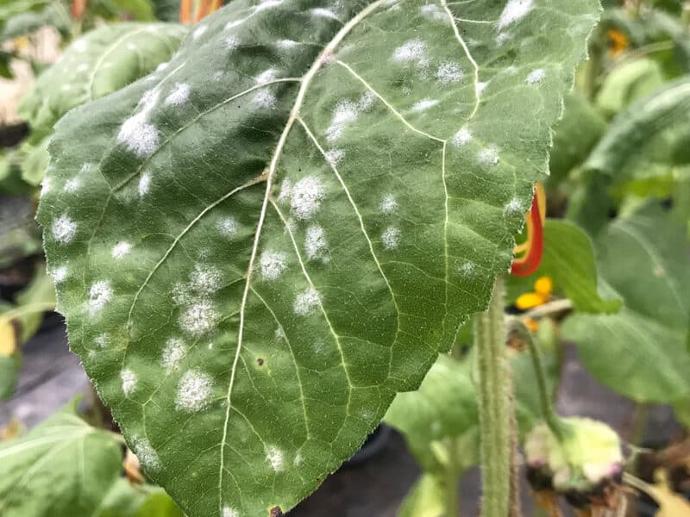Sunflower Plant
Sunflower (Helianthus annuus) is an annual that grows 3-10 ft tall, hardy in USDA Zones 4-9, prefers well-drained, loamy soil, full sun, medium moisture, is edible, and has no medicinal uses.

Habit
Upright
Height
1.5-3 m
Growth
Annual
Soil
Well-drained, loamy
Shade
Full Sun
Moisture
Moderate
Edible
Yes
Medicinal
No
Origin
North America
Climatic Condition
Warm, Subtropical
Temperature (°)
20-30°C
Humidity (%)
40-60%
Potting media
Peat moss, perlite
Fertilizers
Balanced NPK (10-10-10)
Watering
Regular
Plant Weight
1-2 kg
Flowering Time
Summer, Fall
Soil Ph level
6.0 - 7.5
Water Ph level
6.0 - 7.5
Soil EC
1-2 dS/m
Yield Per Plant
2-4 kg per plant
NPK ratio
10:10:10
life Span
Annual
Health Benefits
High in antioxidants, seeds edible
Suggested Grow Media or Potting Mix ?
40% compost, 30% peat moss, 30% perlite
Suggested Fertigation/Fertilizers
Fertilize every 2 weeks with a balanced, water-soluble fertilizer.
Common Diseases and Remedies
Downy Mildew,Rust,Sclerotinia Stem Rot,Verticillium Wilt,Powdery Mildew
Yellow spots on leaves, white mold on undersides ,Orange pustules on leaves, Wilted plants, white fluffy mold on stems, Yellowing, wilting, and dieback of leaves, White powdery growth on leaves
Remove infected plants, use resistant varieties, Apply sulfur, remove infected debris, Crop rotation, avoid planting in infected areas, Use disease-free seeds, rotate crops, Neem oil, baking soda spray
Fungicides with mefenoxam, Fungicides containing myclobutanil, Fungicides like boscalid or iprodione, Soil fumigation with chloropicrin, Sulfur-based fungicides
HEALTH BENEFITS
1. Heart Health:
- Unsaturated fats:
Sunflower seeds and oil are rich in monounsaturated and polyunsaturated fats, which can help lower bad cholesterol (LDL) and increase good cholesterol (HDL) levels.
- Vitamin E:
Sunflower seeds are a good source of vitamin E, an antioxidant that helps prevent cholesterol buildup in arteries.
- Other nutrients:
They also contain magnesium and phytosterols, which can help lower blood pressure and reduce the risk of heart disease.
2. Immune System Support:
- Zinc and selenium:
Sunflower seeds are good sources of zinc and selenium, which are important for immune system function.
- Antioxidants:
They contain antioxidants like vitamin E and selenium, which can help protect cells from damage and boost the immune system.
3. Blood Sugar Regulation:
- Fiber and healthy fats:
Sunflower seeds contain fiber and healthy fats, which can help slow down the absorption of sugar into the bloodstream and regulate blood sugar levels.
- Potential for diabetes:
Emerging research suggests they may have beneficial effects on blood sugar control and type 2 diabetes.
4. Other Benefits:
- Bone health: They are a good source of magnesium, which is essential for bone strength and density.
- Skin health: The vitamin E and fatty acids in sunflower oil can help moisturize and repair skin.
- Anti-inflammatory properties: They contain anti-inflammatory compounds that may help reduce the risk of chronic diseases.
- Energy boost: Vitamin B1 (thiamin) in sunflower seeds can help convert food into energy.
- Digestive health: The fiber content can help improve digestion and prevent constipation.

